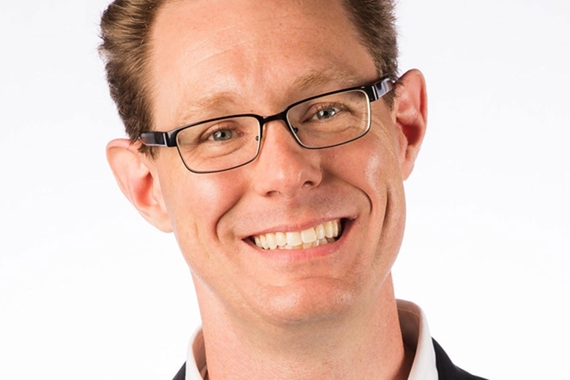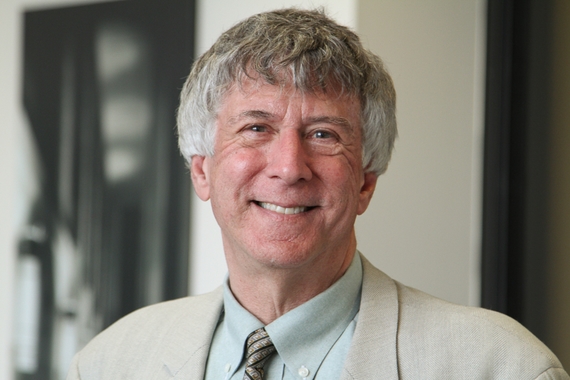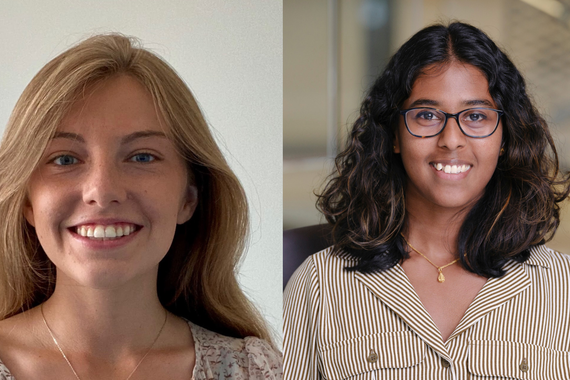Psych Scoop, 7/7/20
| July 7th, 2020 |
|
The Psych Scoop is sent to all Psychology Undergraduate students and alumni every Tuesday throughout the academic school year. Share your news with psyadvis@umn.edu! |
Psychology Advising Announcements1. Message from the Department Regarding International Students and Virtual Courses Many people have expressed concerns about the newly announced international student visa rules, which could affect international students' (both undergraduate and graduate) enrollment in courses this fall. Rest assured that all of the appropriate groups, ranging from the level of the department to our national organizations, are keenly aware of this issue and are working on ways to allow our international students to enroll this fall. One advantage of having a hybrid fall semester is there are likely to be ways to work around the visa limitations that have been imposed. The University is committed to ensuring that international students will have in-person options and are allowed to stay in the U.S. (see the ISSS website for more information). We understand that this is very stressful for some of you and we will do everything we can to help, including providing additional information as soon as we receive it. Jeff Simpson and Pat Frazier |
Courses of Interest2. New Course - PSY 1010 - Introduction to the Psychology of Pandemics - 1 credit - Fall 2020 Online! This course will increase students’ understanding of how psychological science can inform our understanding of causes, consequences, and responses to pandemics, such as the COVID- 19/Coronavirus. In doing so, it will expose students to the different subdisciplines of psychology so they can understand the wide range of theories and methods employed in the field. This is one of the only psychology courses in which students will be taught by a wide range of psychology faculty with expertise in cognitive and brain science, clinical psychology, counseling psychology, industrial/organization psychology, personality, social psychology, and quantitative/psychometric methods. This course does not count as Psychology Elective for most Psychology majors or minors - however, there is one exception. Students that transferred in a 3 credit PSY 1001 course may request that this 1XXX level course be applied to the 4th credit towards PSY 1001. You must email us at psyadvis@umn.edu to request an APAS update for this option. 3. EPSY 3302 - Intro to Communications Skills for Education & Community Settings - 3 credits - Fall 2020 This course is great for anyone who wants to find ways to work better with others. Learn valuable communication skills and concepts as well as techniques to help you reflect on your own communication style. EPSY 3302 is Wednesdays, 4:40 pm- 7:30 pm **Completely Online Instructor: Sherri Turner, Ph.D. (turne047@umn.edu) Note: this course does not count in psychology majors or minors. 4. EPSY 5401 - Counseling Procedures - 3 credits- Fall 2020 According to the American Counseling Association, counseling is the process of building relationships with individuals that empower them to accomplish mental health and wellness, education, and career goals. According to the Positive Psychology movement, counseling can help individuals and communities thrive, cultivating what is best within themselves, and enhancing their experiences of work, love, and play. In this course, you will learn a short-term model of counseling that is rooted in both client empowerment and positive psychology, aimed at helping clients, students, and others manage problems more effectively and develop opportunities more fully. The course relates to the COVID-19 pandemic in that students will learn skills to help others manage stress and isolation, overcome anxiety and fear, and make and implement personally-meaningful choices in their lives. This course is appropriate for individuals whose professional work includes counseling and interviewing and for those interested in advising, counseling, and consulting. EPSY 5401 is Thursdays, 4:40 pm- 7:30 pm **Completely Online Instructor: Sherri Turner, Ph.D. (turne047@umn.edu) Note: this course does not count in psychology majors or minors. |
Events5. FREE Webinar: Mindful Cooking for Body and Spirit Thursday, July 9, 2020, 12:00 pm- 1:00 pm Even in the best of times, eating well is one of the most important things you can do for your mental and physical wellbeing. In our current times, worried about COVID 19 and the state of our community, stress levels are at a peak. Maintaining a wholesome, nourishing, simple mindful eating style can keep you grounded and healthy, so you can put your energy into the important work of social justice and personal, community, and environmental health. RSVP here. 6. Making the Most of LinkedIn: Q & A Webinar Tuesday, July 14, 2020, 1:00 pm- 2:00 pm LinkedIn is the world’s largest professional network, with over 690 million users across the globe. Over 334,000 U of M alumni and students are on LinkedIn. Would you like to utilize LinkedIn more effectively for your own professional purposes? Join Jon Ruzek and Maggie Tomas to get a refresh on best practices, followed by plenty of time for open questions and answers via the Zoom webinar chat. RSVP here. 7. Black Lives Matter and the 2020 Elections Wednesday, Ju1y 15, 2020, 12:00 pm- 1:00 pm The support of white Americans for the Black Lives Matter movement may contribute to the Democratic Party winning elections in November. Republicans disagree. They see an opportunity to use the remedies proposed by Black Lives Matter—especially the dismantling of police departments—to rally white voters. University of Minnesota political science professor Michael Minta leads a distinguished panel to sort out the implications of Black Lives Matter on the 2020 elections. Panelists include Ashley Jardina from Duke University, Christopher Parker from the University of Washington, and LaFleur Stephens-Dougan from Princeton University. Register here. 8. Economics and Public Policy: A Conversation on Aid and Stimulus Thursday, July 16, 2020, 12:00 pm- 1:00 pm As part of the Humphrey School’s Summer Seminar Series, Dr. Fertig will briefly discuss the impacts of the COVID-19-induced economic downturn and the federal response to the downturn. Then, recent alums Cory Georgopoulos (MPP ’20) and Tyler Boesch (MPP ’20) will join Dr. Fertig in a conversation about the effectiveness of the policy response, comparisons to the responses of other countries, and considerations for future policy responses. Register here. |
Research9. *Credit* TNTLAB Undergraduate Research Assistant Opportunity We are looking for motivated and responsible students to assist with current research projects in Professor Richard Landers' TNTLAB (Testing New Technologies in Learning, Assessment, and Behavior). The mission of TNTLAB is to understand the role and potential of the Internet and related technologies to improve organizations in relation to their employees. This research is conducted through the lens of industrial/organizational (I/O) psychology, which is the science of workplace behavior. We incorporate rigorous experimental and psychometric methods to address questions of interest, which involve a range of technologies, including big data, gamification, virtual reality, video games, handheld devices (e.g., smartphones), online social networking, and web-based training, among others. Research assistants would have the opportunity to assist in data collection efforts, conduct literature reviews and background research, design studies, and read and make judgments about data (i.e., coding). Prospective URAs should submit an application through the TNTLAB website. Please contact Chulin Chen at chen6496@umn.edu, the lab manager, with any questions or for more information. |
Resources10. Nutritious U Food Pantry Available Over Summer! The Nutritious U Food Pantry will be offering food to students one day per week at Coffman Memorial Union during the summer months. Students in need can request a bag of groceries using this Food Pantry ordering form. Students can pick up their bag of food at Coffman on Wednesdays from 3-6 pm OR they can choose to have their food delivered to their residence on Wednesday afternoons. Delivery is available for students who live in the following zip codes: 55455, 55454, 55414, 55108, and 55408. Not living on campus? Here are some Minnesota food resources. 11. Reading for Racial Justice The University of Minnesota Press has collaborated with its authors on an open-access collection of antiracist books, available to read free online through Aug. 31. Access the books here. 12. UMN Libraries Delivery of Print Materials has Started! This means that upon request, the libraries will scan and digitally deliver print items, such as book chapters and journal articles, via email. For requests of books and other larger items, we will send them to you by U.S. Mail. Here are three ways to make your request: 13. Resources for Addressing Systemic Racism from UMAA As Minnesota and the country continue to reflect on the death of George Floyd and the protests calling for justice, the University of Minnesota Alumni Association (UMAA), in collaboration with the Black Alumni Network, Multicultural Alumni Network, and additional alumni, has gathered resources to help us listen to a variety of alumni voices, learn from faculty experts, and move forward together. This website will be updated regularly as more information becomes available. |
Jobs/Internship OpportunitiesIMPORTANT: Organizations listed below are not necessarily affiliated with or endorsed by the Department of Psychology or Psychology Undergraduate Advising. Please exercise the same discretion you would in viewing any other source. 14. Research Assistant Position for Study of Post-Traumatic Stress Disorder Treatments We have an opening at the Center for Veterans Research and Education (CVRE) for a full-time research assistant to work on a health services research project, found on this website. The study’s primary aim is to determine which of two evidence-based strategies for treating PTSD is more effective, acceptable, and feasible for patients with comorbid substance use disorder: trauma-focused therapy or non-trauma-focused therapy. The research assistant will: a) Review & extract data from medical records, b) Recruit subjects via telephone, collect data, enter & maintain a database of outcome data collected, c) Conduct research study assessments over the telephone, in accordance with research protocols, d) Organize follow-up assessment mailing, e) Prepare assessment mailings, log returned assessments into study database, f) Scan & verify assessment data into study databases, g) Assist in data cleaning, h) Perform administrative functions including meeting planning, setting up conference calls, maintaining written correspondence, and transcribing memoranda, i) Maintain professional clearances/human studies training to be qualified to work with sensitive data as promulgated by the IRB, HIPAA, VHA, and other regulatory agencies, j) Assist in manuscript preparation as needed (i.e., literature searches & table preparation), k) Independently maintain and organize records & files, l) Develop & distribute patient engagement materials (e.g., quarterly newsletters), and m) Coordinate participant payments. 15. Research Analyst / Senior Research Analyst / Senior Fellow Positions at GiveWell The objective of our research is to identify the giving opportunities which can most cost-effectively improve the lives of the global poor. GiveWell is expanding our research team so we can broaden the scope of our research and explore global health and development more completely than we have to date. More in this blog post. As a researcher at GiveWell, you will work on a variety of projects. Senior staff work closely with new hires and attempt to tailor your assignments to those best suited to your abilities. You should have a bachelor's degree (or higher) in a quantitative field such as economics, mathematics, or statistics, or equivalent experience. Exceptions may be made for excellent applicants who do not meet this criterion. Senior Fellows should have a relevant advanced degree, such as a Ph.D. in economics. We can sponsor work visas and remote work is available. Read more and apply on our website. |


